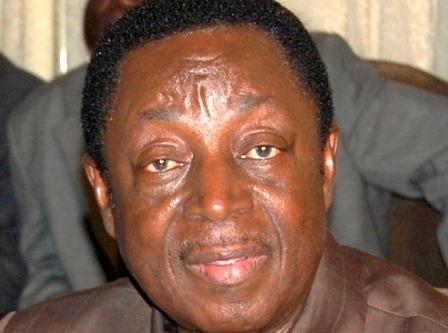Confidence in economy soars with high foreign participation
 Ghana’s economy is still enjoying the high confidence of
investors, as shown in the massive subscription of its latest medium-term bond.
Ghana’s economy is still enjoying the high confidence of
investors, as shown in the massive subscription of its latest medium-term bond.
Confidencein the Ghanaian economy still subsists, after a close general election that provided a president, but which has left one side of the political divide discontent about the credibility of the outcome.
Before the general elections on December 7 last year, many political and economic analysts and commentators had projected the loss of confidence in the economy on several counts, including the fear for a high fiscal deficit that can derail the economic stability.
They also feared violence could disturb the political stability of the country, a situation that would make the economy unattractive to investors for a long time to come.
These perceptions tainted some analysis that cause investors to hurriedly withdraw their investments in the economy, particularly in government instruments, a phenomenon that saw the weakening of the Ghana cedi against major international currencies at the very beginning of the election year.
Between January and September 2012, the cedi lost about 20 per cent of its value to the dollar.
However, managers of the economy deployed measures, mainly from the monetary policy side led by the Bank of Ghana, which translated into stability in the currency and other macroeconomic indicators.
In July 2012, the government issued a medium term bond, which was initially to raise GH¢300 million, but was oversubscribed at GH¢775.14 million, entitling the government to accept GH¢534.16 million.
This was a pleasant surprise since it came shortly after the sudden demise of the country’s leader at the time, President John Evans Atta Mills. Stated differently, it was also the dividends the country derived from implementing a smooth transition that went into the annals as perhaps the most well conducted transition in Africa.
The extra bonus for conducting a civically sound election is the 450 per cent oversubscription the country has just seen in the flotation of a new three-year bond that raised GH¢402 million, the first in a series proposed for 2013.
The offer was over-subscribed with almost an outright foreign participation. The Public Relations Unit of the Bank of Ghana said in a release that part of the proceeds would be used to finance the country’s maturing debts while the would be used to finance development projects.
The release explained that the over-subscription meant higher appetite for government of Ghana debt instruments and confidence in the economy.
The government will count on the continued show of confidence in the economy to a total of GH¢1.2 billion in the first half of 2013 alone, through three bond offers.
After the government found high twin deficits (over-spending) on both the domestic accounts (fiscal deficit) and the external accounts (balance of payments deficits) of above 14 per cent of the Gross Domestic Product (GDP) in 2009, it resorted to savings and domestic borrowing to finance projects and retire outstanding payments.
The repayment of such short-term borrowing falls due quickly and the government has to find ways of paying them out.
In the latest issue, although the government proposed to raise an amount of GH¢400 million in the January 10 bond issue, the auction recorded inflows of GH¢2.2 billion, translating into 450-per cent oversubscription. The government, however, accepted GH¢402 million at a coupon rate (interest rate) of 16.73 per cent.
The Ministry of Finance said about 99 per cent of the bids came from foreign investors and the rest from firms and institutions, commercial banks and individuals within the country.
The large foreign participation further means that the country can get access to the much-needed foreign exchange to augment foreign exchange reserves.
Commenting on previous sales of government bonds last year, the Portfolio Manager at Stanbic Investment Management Services, Mr Kwabena Boamah, told the GRAPHIC BUSINESS that “it is possible all these foreign investors had alternative markets in the West African sub-region, such as Nigeria, to look to. To have majority of the bids coming from foreign sources means a lot of confidence in the economy and the market.”
The investment analyst said since the bond was a medium-term one, it would offer the investor public the avenue to lock in and enjoy good returns for a long time, because interest rates were likely to drop in the next two or three years.
The outgoing Minister of Finance and Economic Planning, Dr Kwabena Duffuor, who sources say would not want to remain as the substantive minister any longer, was quoted in the statement as saying that, “the 450-per cent over-subscription is an indication of investor confidence in Ghana’s economy. The government is committed to ensuring fiscal consolidation for the fifth year running.”
Last year, the government issued six cedi-denominated bonds, made up of two five-year fixed rate bonds and four three-year fixed rate bonds, all of which were oversubscribed.
Among the bonds were a three-year bond in May 2012 and a five-year bond in June 2012. Both instruments have seen significant drops in their coupon rates, indicating that both domestic and foreign investors have shown great appetite for Ghanaian risk.
While some of the funds were used to finance infrastructural projects, others went into the payment of debts that had fallen due.
The January 10 oversubscription also comes at the back of a below nine per cent inflation rate recorded for December 2012. Inflation rate for December 2012 declined to 8.8 per cent, representing a decrease of 0.5 per cent points over the November 2012 figure of 9.3 per cent.
In the 2012 supplementary budget statement presented to Parliament, the government projected to record a cash deficit of GH¢4,669.0 million (GH¢4.66 billion), which is equivalent to 6.7 per cent of GDP, as against the initial 2012 Budget estimate of GH¢3.369 billion, or 4.8 per cent of GDP. GB
Story by Lloyd Evans & Samuel Doe Ablordeppey
